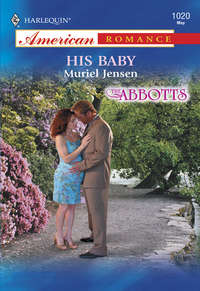
Полная версия
Second To None
Colette leaned toward Veronica as she unfolded the sheet and studied the rough blueprint for her new home. A bath and bedroom were side by side at the far end of the oblong space, a U-shaped kitchen took up the middle and a breakfast bar separated it from the living room at the front.
She noticed a narrow space that ran along the very edge of the loft. “What’s that?” she asked, holding up the sheet and pointing to the strip.
“It’s the gallery,” Katie answered. “For keeping books and plants and things. And it’s gonna have windows so you can see down into the day care.”
Colette looked startled. “You didn’t even tell me that,” she complained to Tate.
He shrugged. “You weren’t sitting in my lap when I did it.”
Colette poked a playful finger at her daughter. “That’s because someone else is always in it.”
Katie giggled and leaned back into Tate’s chest, apparently not feeling repentant.
“I think it’s wonderful!” Veronica folded the sheet and handed it back. “I appreciate all the trouble you’re going to for me.”
“We’re happy to have someone in the space. It’ll make the compound completely operational.”
“I can help you with a nutritional menu for the kids’ snacks and meals,” Shea offered. “And we can order your food with ours to make it more economical.”
“Shea’s the sweet one,” Colette said to Veronica in a stage whisper.
Shea pretended modesty.
There was simultaneous grousing from Tate and Mike.
“She plays up to him for his white-chocolatemacadamia-nut brownies,” Tate accused. “I’m the sweet one.”
“No, you’re the orderly one,” Shea corrected. “The detail-obsessed slave driver who never gives any of us a moment’s peace.”
Tate opened his mouth to dispute the point.
“Save it,” Mike advised before Tate could speak. “That was more on target than a smart bomb.”
“I think Mike’s the sweet one.” Rachel, seated between Mike and Shea, patted Mike’s arm. “He takes me shopping once week, and he even had a step installed on the Blazer to make it easier for me to get in.”
Mike spread his hands wide—the seated equivalent of taking a bow.
Then Rachel added with a taunting grin, “You just don’t think of him as sweet because he always looks as though he’s going to arrest you.” She elbowed him affectionately. “You do have to lighten up, dear.”
Veronica watched Mike take the resultant laughter and ribbing with good-natured aplomb. This man was not at all what she expected.
CHAPTER THREE
VERONICA WATCHED THE CREW at work and wondered if this was what an old-fashioned barn raising looked like. Except that in this case, the barn had been put up a hundred years ago and now its innards were being renovated.
Half a dozen men swarmed over the barn, cutting holes for large, modern windows, and building walls both downstairs and up in the loft, according to Tate’s specifications. A full kitchen was installed in the day care, as well as a small, efficient one in her apartment.
Then the carpet came, a mottled hunter green that was vibrant and patterned to conceal dust and spills. Veronica walked across it one evening when the workmen had gone and found it wonderfully springy underfoot.
She sat down in the middle of it, drew up her knees and looked around. Except for light fixtures, which would be installed tomorrow, the structural work was done. Now it was her turn to paint and paper—and get ready for business.
She blessed the impulse that had made her come to Delancey vineyards for a tour three weeks ago. When she’d left the convent, a relative of one of the sisters had gotten her the ESL job in Portland. While she’d been grateful for it, she’d known immediately that she didn’t want to stay there. The small parks throughout the city were beautiful, and Portland was a wonderful city, but for the first time she was able to choose where she would make her home, and she wanted to live in the country.
She’d wanted it since she’d been a girl. From the moment she’d become aware of the ugly world surrounding the filthy tenement rooms that were all they could afford after her mother had spent her welfare checks on drugs and alcohol, Veronica had dreamed of living where there were grass and trees, and animals that didn’t come out of the walls at night to fight you for your food.
Once, when her mother had been in rehab, Veronica had stayed in a foster home with a TV. She’d watched reruns of Green Acres and enjoyed the antics of the characters. But mostly she’d thought the setting marvelous. She’d decided that when she grew up, she’d live in the country where there’d be no neighbors screaming on the other side of the wall, no dark alleys...no loneliness. Country people always looked so well-fed and cheerful—and they always stuck together.
Veronica lay back on the carpet, closed her eyes and said a prayer of gratitude. Tomorrow, Tate and his brothers were moving unneeded furniture from their house into her loft She would bring her few possessions from the apartment and stay overnight for the first time.
She had accomplished so much more than she’d expected to—and so quickly. Good. Step Two of the plan—finding an apartment convenient to her business—almost completed.
MIKE’S GAZE FELL to the newly laid carpet as he pushed on the half-open door of the barn. He was here with a message for Veronica from Colette, but he forgot it temporarily as he admired the renovations.
The walls looked neat and sound, and the upstairs had been completed, though not yet painted, windows looking down on the playroom below.
And it was as his eyes swept the rest of the area that he saw Veronica lying on the floor. His heart lurched. What had she fallen from? Or had she just collapsed? Earlier he’d watched her helping the workmen put up wallboard, then roll out the carpet padding. She’d probably overdone it—
He was halfway toward her, his concern mounting, when she sat up, looking perfectly sound, and blinked at him in bemusement. He stopped in his tracks, relieved and exasperated. He drew a steadying breath. “If you’re going to take a nap,” he said, “don’t sprawl out on the floor that way. I’m liable to draw a chalk outline around you.”
He almost expected her to be annoyed with him, but she laughed instead.
“Sorry.” She got lightly to her feet. “As you can see, there’s nothing to lie on but the carpet. I was just relaxing. Did you need something?”
She wore a pair of baggy, dark blue sweats, splattered with paint. The pants hung on her, yet failed to detract from whatever there was about her that he always noticed.
She smoothed the sweats self-consciously, probably thinking he’d been studying her with criticism rather than admiration. “I got my wardrobe,” she said, “from the St. Vincent de Paul Society and the thrift shop when I left the convent. You won’t find it at Bloomingdale’s.”
He looked down at his own winery “uniform” of jeans and sweatshirt. “I, on the other hand, am outfitted by JCPenney’s...” He indicated his jeans, then plucked at his sweatshirt with its Dallas Boys’ Club logo. “And the fund-raising efforts of a friend of mine.”
“You worked with a boys’ club?”
“No. My old partner did, and I often got roped into helping out. The shirt sale was to raise money for gym equipment...” That was all he wanted her to know right now. It wasn’t like him to talk about himself, even in a general way. But she’d looked embarrassed about her clothes.... “Colette wondered if you needed the winery’s truck to move your things.”
“I’ve ridden in that beast with Colette. It’s pretty temperamental, and I can’t drive a stick. But tell her thanks. I’ll just make a couple of trips in my car.”
“Actually, she was offering you the truck and an assistant with stick experience.”
She raised an eyebrow warily. “You?”
He tried not to be annoyed by her obvious reluctance. “Me. Tate’s picking up some friends who are coming out for the wedding. And Shea’s busy cooking for the reception.”
“It’s not that I’d prefer someone else’s help.” She seemed impatient that he thought so. “It’s just you’ve made it clear you don’t want me here, so I’m sure there are things you’d rather be doing.”
That was frank. He responded with equal honesty. “That’s not entirely accurate. I don’t think the day care center should be here. It has nothing to do with you personally.”
“You’re sure?” She smiled suddenly. “You’re convinced I’m not a B-and-E artist, but you always look as though I worry you. Are you afraid I’ll force you to pray or light candles or something?”
He didn’t think he’d ever known a woman who’d kept him so off balance—and he’d known a few who had loved to try. But this one didn’t seem to be playing at anything, and that was somehow harder to deal with.
“B-and-E artist?” he asked, trying to unsettle her. “You talk more like a cop than an ex-nun.”
She shrugged and folded her arms, her stance becoming just a little aggressive. “My mother did time in every prison east of the Mississippi, several times for breaking and entering. But mostly for drugs and prostitution.”
He had to concede that round. He was pitched a little further off balance, while she seemed to root herself in place, as if she’d taught herself to stand firm under the assault of childhood memories.
“I’m sorry,” he said with quiet sincerity, his earlier annoyance with her evaporating.
She shrugged again. “Everybody has something ugly to live with. But that’s beside the point. I can move my things over tomorrow, a little bit at a time. Thanks, though, for the offer.”
He knew it was chauvinistic of him, but he’d never be the kind of man who could happily let a woman tell him what to do. He’d be the first one to admit they were equally intelligent and capable, but upbringing and instinct made him feel responsible.
A policeman protected the small and the weak and anyone else who asked for help, and although he was off the force, at the core, he’d always be a cop.
“I’ll be at your apartment at nine,” he said, ignoring her attempt to interrupt him. “It’d help if you had boxes packed already. We have the wedding rehearsal early in the evening.”
She followed him to the door, still objecting, but he turned only to remind her, “9:00 a.m.,” then walked away.
EVERYTHING VERONICA OWNED was in the bed of the truck in less than an hour.
Mike looked at the dozen or so boxes, and the clothing on plastic-wrapped hangers held together by a rubber band, and asked in surprise, “This is it?”
She nodded. “Yeah.”
“No furniture?”
“No.” She reached into the truck to secure the flaps on a box. “I took a vow of poverty, remember?”
He frowned and closed the tailgate, then walked around to open the passenger door for her. “I guess I didn’t realize that was meant literally.”
She dropped her purse on the floor and climbed in. “It was a promise,” she said as he handed her the end of her seat belt. “You took all your oaths as a cop literally, didn’t you?”
“Of course I did. But they didn’t require that I face the world with only twelve cardboard boxes.”
“They required you to risk your life.” It amused her that he was less horrified by that. “Poverty’s easier.”
Mike looked uncomfortable, and shifted the conversation.
“We scrounged you a table and chair and a couple of other things from the house, but you have no bed, no sofa, no television.” His message of doom delivered, he closed her door and walked around to climb in beside her. “You’re going to have to spend your life standing up.”
“I’ll sleep in the bathtub.”
“People only do that in the movies.”
She shook her head as he backed the truck out of the driveway. “That isn’t true. I slept in a bathtub in New York for several months when I was about nine. I even had to keep the plug in so nothing climbed out of the drain.”
He stopped before joining the mid-morning traffic to focus on her. “You’re kidding.”
“No. It was quite comfortable.” Veronica always made references to her past with a smile. It masked the ache the memory brought. “So, don’t worry because I don’t have a sofa. I’ve dealt with worse deprivation. And if I’m in the tub, you won’t be tempted to draw a chalk outline around me.”
He waited for a mail truck to pass, then drove half a block and stopped at a red light. He turned toward her, as though trying to see how she really felt.
“Your mother was in or out of jail at the time?”
“Out. She...you know...worked in the bed.”
He said something under his breath that was seldom heard in a convent. “Where the hell was Children’s Services? You must have been in foster care when she went to jail. Didn’t anybody notice it was happening a lot?”
Veronica wondered why she’d made the tub remark. She had only talked about her past to a couple of priests, and once to another nun. It would have been much easier to let his casual remark about her lack of a bed lie unchallenged.
She didn’t think she needed to talk about it. She’d made her peace with the past long ago—the day she walked into the motherhouse of the Sisters of Faith and Charity and offered them her future.
But she’d reneged on that offer twelve years later because she knew she didn’t have a true calling. Did that mean she hadn’t adjusted, after all? It was a sobering thought.
“I was finally taken away when I was twelve and went to live with the Porters, an older couple in Philadelphia who took in foster kids. My mother ODed in prison, and I stayed with them until I graduated from high school and joined the convent.”
He studied her face for a moment, the said with a conviction that was unexpected, “You’ve made it your life’s work not to be angry about your childhood, haven’t you?”
“I’m not angry.” She looked out at the sunlight gleaming off store windows and windshields and chrome. “My foster parents were loving and protective and taught me that your life is your life. You take what you get. And if you’re in a bad situation, you do your best to make something good out of it.”
“Are they still around?”
“No. They died within months of each other shortly after I went into the convent.”
“Is that why you joined?”
She turned to him. “What do you mean?”
Another red light. He stopped the truck, then faced her again, his eyes gentle. “To make something good out of your situation? To atone for your mother? Or for yourself? For all the horrors you saw and endured and couldn’t do anything about?”
It was an astute observation, but not quite on target. At least, she didn’t think so. “I entered because I was lonely. I wanted people in my life who would be there, who would be dependable. My mother obviously wasn’t that. She always wanted me back when she got out of jail, but I was never sure why. And in the foster homes, kids came and went—nothing ever stayed the same. Val and Henry—my foster parents—tried, but they had other foster children, too. I never dated until my senior year. My past was so different from everybody else’s, I didn’t know what to talk about. And I didn’t want anyone to know.”
She rolled down her window and breathed deeply. “I’d been in the convent a couple of years, though, before I realized that. I started to wonder why I still wasn’t happy, I examined my motives and decided I’d been looking for a big family, not necessarily for God.”
“Tate said you were part of the order for twelve years.”
“Yes. I’d started helping in the classrooms while I went to school myself, and I was enjoying the children so much, I couldn’t leave.”
“But you could have taught outside the convent.”
“I didn’t have my degree yet, and I couldn’t afford to go to school and set up an apartment, buy a car and all the things working people need. And I was still somewhat confused, so I stayed in. And the longer I was there, the harder it got to think about leaving. I wasn’t happy, but I was...safe.”
“Safe.” He repeated her word as though considering what it meant. “From what you went through as a child?”
“Yes, definitely that.” They left French River and followed the winding, tree-lined road to the winery. “About eight months ago, I went on a retreat. I did some serious soul-searching and realized I was using the convent not only to protect me from the past, but as a buffer against the future. Convent walls were a fortress between me and what might be expected of me on the outside. I was hiding.”
“What brought you to French River?”
She explained about teaching in Portland but longing for the country, and the sudden impulse to take the winery tour. “I was standing behind the B-and-B, admiring the view, and Colette approached me. We got talking...and we’ve been friends ever since. Then a parishioner I used to help in Portland heard about my wanting to open a day care and sent me a generous check for supplies. So I called Colette and asked if I could rent the barn.” She hesitated a moment, then added, “I am sorry you disapprove, but I promise the children won’t get in your way.”
“Children get in the way anywhere. It’s how they learn,” he replied matter-of-factly.
Mike helped her carry her belongings to the loft, then looked around at the still considerable emptiness.
“What are you going to sleep on tonight?” he asked. “And please don’t tell me you’re curling up in the bathtub.”
She pointed to the stack of boxes. “I have a sleeping bag in one of those. I’ll be fine.”
He didn’t seem to think that was possible. “I’ll bring the table and chair over right away, so you can at least sit down.”
“Thank you. That would be nice.”
As he loped down the stairs, Veronica put her meager groceries into the cupboards she’d washed and lined with paper yesterday. She had oatmeal, mesh bags of onions and potatoes, a string of garlic, a can of chili, a small bottle of olive oil, pasta, herbs and spices, a box of tea and a shaker of Parmesan cheese.
She would have to go shopping at the first opportunity. But tonight was the rehearsal, and tomorrow was the wedding.
She put two towels and two facecloths in the small cupboard under the bathroom sink, a hairbrush in the drawer and a bottle of aspirin in the medicine cabinet.
Then she hung her clothes in a closet with sliding doors, stopping to admire the shelf that ran along the top and the pigeonhole divisions on the bottom for shoes. She smiled wryly because she had very little to put into it.
She’d put two boxes of school and art supplies in the center, leaving one final box to unpack. She unrolled her sleeping bag and placed a thin pillow on top, then leaned a crucifix against the window.
Mike returned with a rocking chair, a battered coffee table, and gray metal shelving. “I know this is really ugly,” he said as he put it, under her direction, against the living room wall, “but it might be useful until you can get something better. In the truck I’ve also got two small file cabinets. With a board or a door across them, you’ll have a desk.”
He brought those up, one by one, then gave her a picnic basket “Shea sent you some lunch and a few things for the kitchen.”
“Oh!” Veronica delved into it excitedly, finding two sandwiches, a small casserole bowl of pasta salad, two apples, and two cans of pop. She smiled at Mike, warming to the idea of sharing her lunch with him. “It looks as if I’m supposed to invite you to join me.”
He didn’t even take time to think about it. “Thanks, but I’ve got a million things to do.”
She nodded and moved to put the sandwiches and salad in the small refrigerator so he wouldn’t see her disappointment. When she turned back to him, she had a bright smile in place and a hand extended.
“Thank you for your help.” He took her hand in his, and she noticed its considerable size and strength. And its warmth. She drew hers away and folded her arms as she walked him down the stairs. “I appreciate your giving up your morning to help me.”
“Sure.”
The situation had become awkward, a circumstance fairly foreign to Veronica. She was good with people, and they usually warmed to her. But dealing with single men her own age was different. She felt awkward because he’d turned down her invitation, but he seemed equally uncomfortable. Because he’d rejected her? she wondered. But she was doing her best to pretend it didn’t matter.
Either she wasn’t as good an actress as she’d thought, or she still had a lot to learn as a woman.
“Do you need a ride to rehearsal?” he asked when they reached his truck.
She stood aside as he opened his door. “No, thanks. Colette and I are going to town to pick up my car this afternoon.”
“All right. See you in church, then.”
That, at least, was comfortable territory.
AFTER THE REHEARSAL, Veronica met Bill Markham and Gina Free, Tate’s former partners in the architectural firm he’d left to come to French River. Their two-year-old, Jacob, was passed from lap to lap and fussed over particularly by Megan and Katie.
The couple had also brought with them Tate’s former secretary, Cece Phips. The girl was blond with a buzz cut, an eccentric taste in clothes and a sweet, extremely enthusiastic nature.
Over appetizers at the Chinese restaurant where they’d all convened after leaving the church, Cece couldn’t stop talking about Oregon.
“I didn’t expect it to be so beautiful, you know?” She dipped fried wonton in duck sauce. “I mean, all everybody talks about is how green it is because it rains so much, but, I mean, there must be a million shades of green, and those yellow flowers along the road—what do you call them?”
Veronica knew the answer because she’d noticed them, too, and had asked Colette. “Scotch broom,” she replied. “A real problem, I’ve been told, if you have allergies.”
“I’m strong as an elephant,” Cece boasted after a bite of the crispy appetizer. “Had all the childhood diseases, but now I never catch anything. No allergies, no sensitivity to food.” She smiled wryly. “A few phobias, though. And sometimes I go at things too anxiously and I screw up. I want to do it perfectly, but I sort of go into overdrive.” The smile became rueful. “Guys don’t like that. You either have to be helpless or totally together. But if you’re sort of competent, but not entirely, then they’re tempted to get involved but don’t like it that you mess up, so they kind of come and go—you know what I mean?”
Veronica was tempted to explain that she’d just come out of the convent and really didn’t know at all. But it seemed like the wrong time to get started on that. So she ignored it altogether. “Maybe you’re just meeting the wrong men.”
Cece nodded as though that was a possibility. “I go to school part-time. I’m a Psych major. College guys are either party, party, or they’re totally intense! And the clients at Markham, Free, and McCann are so into their building plans, they don’t even see me.”
“That could change tomorrow.” Veronica passed her the mustard for the barbecue pork. “Some wonderful man who’s looking for all the qualities you possess could walk right into your office, or your lecture hall, and you’ll be the first one he notices because he’s ready to find you, and you’re watching for him.”
Cece considered her words wistfully. “You think?”
“Sure.”
“Are you married?”
“No.” Veronica saw Cece’s faith in her prediction shrivel, forcing her to explain anyway. “But I’ve been a nun since I graduated from high school. I just left the convent a couple of months ago.”
Cece’s eyes widened. “A nun! How cool! So you must, like, understand everything. Life, purpose...”
“Actually, no. We struggle along the way everybody else does. We simply have more time to pray about it.”
“Wow.”
Tate interrupted, pushing a tall, lanky young man into the chair on the other side of Cece. “Cece, I’d like you to meet Tony Fiorentino. Tony, Cece Phips with Markham, Free, and McCann. She came for the wedding. Tony’s spending the summer out here and is working with the crew that’s doing the renovations around the winery. I spotted him in the lounge and knew you had to meet him.”









